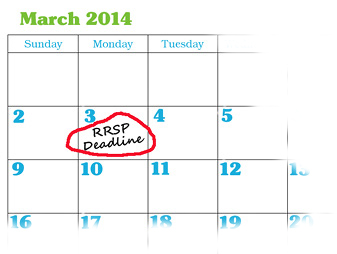Many of us grew up with the tried and true advice from our parents that we should invest in RSPs, and like a lot of parental advice, it is often ignored. Less than one in three eligible Canadians take advantage of this investment according to StatsCan.
It’s not that people don’t think about the future. It’s often a case of being overwhelmed by information and unsure how to sort it out. Would they be better off with a Tax Free Savings Account (TFSA)? Should they focus on debt repayment instead of retirement savings? Should they borrow to invest?
Uncertainty can lead to inaction, and before they know it the RSP contribution deadline has come and gone.
But, hold on, before you let the deadline pass, do you want to know how much tax you could save if you contribute to an RSP? It may be just the incentive you need to contribute this year.
Knowing your marginal tax rate (which varies province to province), is key. It is this rate that determines how your RSP contribution translates into income tax savings for 2013. Ernst and Young has a great tax calculator to help you determine your marginal rate. (View it here).
Your marginal tax rate depends on your taxable income, so if you live in British Columbia and have $1000 to invest in your RSP here are some examples of how much you will save in taxes:
Taxable income Marginal Tax Rate (BC) Tax Savings on $1000 RSP contribution
$40,000 22.70% $227.00
$60,000 29.70% $297.00
$80,000 32.50% $325.00
$100,000 38.29% $382.90
Of course you will pay the tax on that money when you withdraw it down the road, but you’ll pay it based on your income level (and marginal tax rate) at that time, which in retirement, will presumably be less than in your peak earning years. But whether or not that will be true for you is something else you need to consider.
If you’d like to contact a Money Coach visit our Coaches page.
The information in this post is for illustration purposes only, please consult with a tax professional for personal advice.



